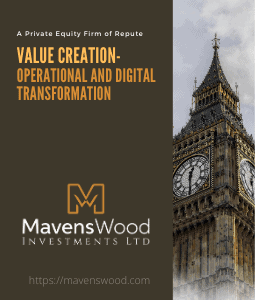Private Equity AUM as a share of US GDP was 5% in 2002 and 17% in 2018 which gives rise to many questions and concerns: Is this already too big for the economy? What about valuations? Should we invest now or wait a bit?
Participants of this Roundtable believe that the PE class will continue to grow driven by institutional investors&’ dilemma of how to get to a seven or eight percent actuarial assumption in a low yield environment with an expensive stock market. The answer for many institutions is to increase their target allocations to private assets.
Meanwhile, some investors already think that certain pockets of private equity are absurdly expensive and some offerings might turn into a game of musical chairs at some point (page 8). Also Venture Capital is very expensive and funds are challenged to find sound investments that are not already fully priced (however, an investment can be “okay” even if fully priced as long as the business model executes – see example on page 10). Still, the industry is being forced to develop new, more specialized models and turn away from the “cocktail party” investing style (page 11) at a time where VC funds at a fraction of a SoftBank Vision Fund size are also gaining traction with investors.
“What is ODD?” 10 years behind hedge funds & tax issues coming down the pipe
Some people in the industry think that private equity is now where hedge funds used to be 10 years ago – more or less before Madoff. Sure, a number of the bigger private equity firms are using an external administrator – but does this address all potential concerns? Why is AML risk still a major theme in PE and VC?
Another theme that seems to resonate through out the industry is that private equity players are still quite reluctant to evaluate their specific tax risk profile. Structurings should provide for after-tax benefits for investors, but these concepts are endangered. New tax transparency concepts such as DAC6 will be enacted latest 2020 with a retroactive three year reporting period. Furthermore the very stringent anti-avoidance tax directive will be implemented soon, too. This means there are plenty of tax issues coming down the pipe both on national and international level. In this context is should be noted that part of the German CFC/PFIC concept is now introduced in US tax legislation as well.
Data Crunching: Surprising Findings
What does “big data” say when you look at questions such as “death by committee” versus “death by a gunslinger” (quality of investment decisions), and why often with fund three “the wheels can start to fall off, and fund four then often is a disaster”? (page 27-28)?
The Opalesque 2019 North America Private Equity & Venture Capital Roundtable, sponsored by WTS Global, took place in New York with:
- Anushree Mohta, Head of Operational Due Diligence, Siguler Guff & Company
- Barry Seeman, US Investor Relations and Advisor, Leaseum Partners
- Christopher Zook, Chairman and Chief Investment Officer, CAZ Investments
- Matthew Leibowitz, Partner, Plaza Ventures
- Robert Welzel, Partner, WTS Global (sponsor)
- Ronen Schwartzman, CIO, Cooper Family Office
The group also discussed:
- Combining private credit with private equity. Where to look for low correlations to equity markets. The risks of covenant-lite lending (page 8)
- What to think of the mega buyout funds. The role of the Multiple On Investing Capital (MOIC) ratio vs. IRR. Adding true value post-acquisition (page 10)
- The attraction of small and emerging PE/VC managers / seeding (page 10, 25, 30) and how to address their business viability (page 30-31)
- Making money with &’tweener rounds&’. How to minimize the J-curve return on LP capital. A new mode of raising VC capital (page 12-14)
– VC in Israel (page 15-17). VC in Canada (page 16-19). VC in New Zealand and Africa (page 7, 17-18, 33) - Aspects on Due Diligence on PE/VC funds: Administrators, Internal Controls, Business Risk, Governance (page 19-23)
- Tokenization: Why family offices are cautious (page 24)
- Key man risk / Succession: As private equity matures – literally – the industry could be facing its first major wave of retirements: Implications for investors (page 24)
- GP Academy /Kauffman Fellowship Program. How GPS should deal with disputes inside of their partnerships (page 26-28)
- Where are fees heading in PE/VC? Who is charging zero management fees? Co-Investing: More words than action. The history of the 2 and 20 (page 28-29)
- How to get and manage good deal flow (page 32).
----------------------------------------------------------------------------------------------------------------------------------------
The Carried Interest is an aggregated news-headlines, intended to bring together curated news, research, data, people of Private Equity industry from around the world in one place, exposing their content and experiences to a niche discerning audience.
All the news/posts/images displayed on our blog are the property of their respective authors/news sites, and each one has a link back to its original source. In fact, we only display an excerpt of the content to give the reader a taste of what that blogs, news, post or the opinion have to offer.
We are not here to steal anyone’s content or ideas, so if any content providers featured on this website decide that they don’t want their latest posts to be featured on this site they can get in touch with us here.
The primary aim of content aggregation is to gather and share quality web content that would have been difficult to find. Most of the publications cannot compete with search engines. Content aggregators find the publication's information, provide a new taxonomy and design it so that readers can access it easily. This ensures that consumers find the information that they actually need in one place rather than many irrelevant results from a search engine.
-------------------------------------------------------------------------------------------------------------------------------------








